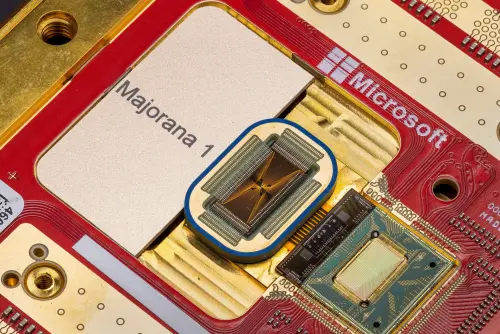On February 19, Microsoft unveiled a new chip, signaling a closer arrival of quantum computing than previously thought. Quantum computing offers the potential for significant advancements in various fields by tackling complex calculations quickly, which classical computers struggle with. However, it also poses a threat to current encryption methods due to its ability to potentially break through them.
The challenge with quantum computers lies in handling qubits, which are sensitive to errors and difficult to control. Microsoft's Majorana 1 chip has shown promise in reducing errors, as proven in an upcoming scientific publication in the Nature journal.
The timeline for the realization of practical quantum computers remains uncertain, with differing opinions within the tech industry. Microsoft's chip, developed over nearly two decades, is based on the Majorana fermion particle and has the potential to revolutionize quantum computing due to its unique error-reducing properties.
Microsoft's Majorana 1 chip, made of indium arsenide and aluminum, utilizes a superconducting nanowire for particle observation, promising lower error rates compared to competitors. Despite having fewer qubits currently, Microsoft's approach could lead to more efficient quantum computers in the future.
While Microsoft has not provided a specific timeline for scalability, the company hinted that such a breakthrough could be within "years, not decades." Executive Vice President Jason Zander views Majorana 1 as a bold yet potentially rewarding move for the company.
The research and fabrication of the chip took place at Microsoft labs in Washington state and Denmark. Philip Kim, a physics professor at Harvard University, praised Microsoft's work with Majorana fermions, highlighting the company's pioneering role in quantum computing research. He also commended Microsoft's hybrid approach in combining traditional semiconductors with superconductors as a promising path towards developing more powerful chips in the future.
